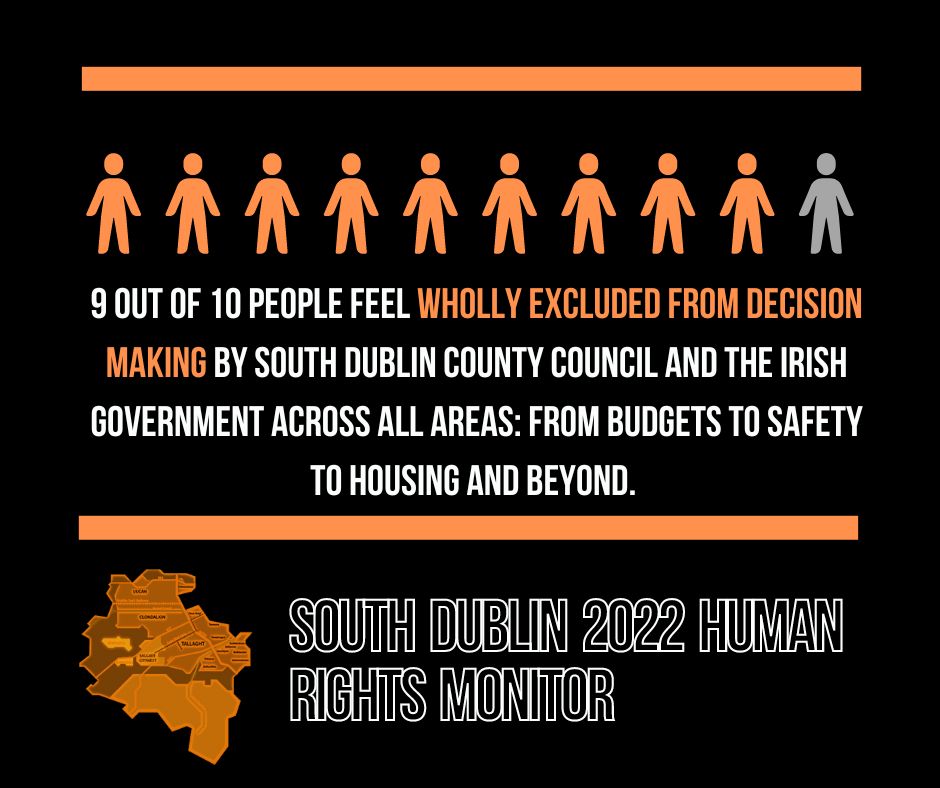The state of human rights in South Dublin 2022: A community response
Part one in a three-part series following a community mobilisation to monitor international human rights at a local level
Communities living in public housing estates in Tallaght and Clondalkin have long been frustrated by the poor housing repairs and maintenance service provided by South Dublin County Council. Long delays for vital repairs, including leaks, electrical safety and window replacement are the norm. Many of the windows are single-glaze timber frame with poor insulation. Damp and mould growth is widespread.
As winter approaches families will struggle to stay warm and bills will be extortionate.
These communities experience poor health services, inadequate funding and support for young people and a continuing concern about the safety of children. Making ends meet when incomes are inadequate and an ever-increasing reliance on food banks compound these issues leading to a growing sense of marginalisation and abandonment. As our latest survey reveals, participation in decision making processes is virtually zero.
In 2017 communities published the results of a survey which collated the experiences people had when they made requests for maintenance and repairs from the council. A strong campaign was led for better services, promises were made by officials and elected representatives. Nothing changed. As our latest survey reveals many of the minor issues have now become major issues – the failure by the Irish Government to invest in our communities has led to a deepening housing crisis with wide-ranging human rights implications.
Since the spring of 2022 we have been conducting research in our communities – carrying out surveys, photo mapping problems and compiling a report for the attention of the community and responsible authorities.
In 2021, with funding from the Irish Human Rights & Equality Commission, communities set up the Living Our Rights project, both to survey and document these human rights issues, as well as to assess how local and national institutions, officials and elected representatives were performing against the international human rights obligations and local laws they are duty bound to uphold. Since the spring of 2022 we have been conducting research in our communities – carrying out surveys, photo mapping problems and compiling a report for the attention of the community and responsible authorities.
The results are in and we will share them all for the first time in community meetings on the 7th and 8th November 2022.

The personal testimonies of local residents on living conditions, housing standards, mental and physical health care, addiction services, education, leisure, security and participation are damning.
Two of the findings stand out overall as indicators of both the how and the why successive Irish Governments have failed to adequately support the realisation of the rights of its citizens and lead to deeper questions about whose interests are most influencing the policies of the present:
- Nine out of ten people reported feeling wholly excluded from decision making by South Dublin County Council and the Irish Government, across all areas from budgets to safety to housing matters and beyond.
- When asked to rate the support available in their communities people reported feeling most supported by teachers and least supported by local elected representatives.
If you would like to join the community meetings and be part of a discussion on how we can respond to defend our rights in South Dublin, email – aidlloyd@gmail.com